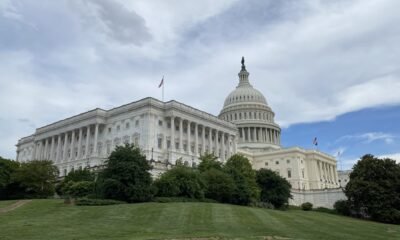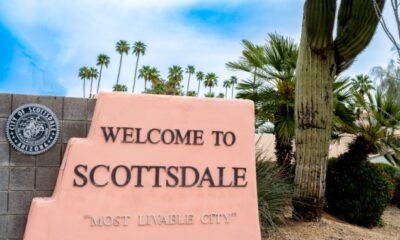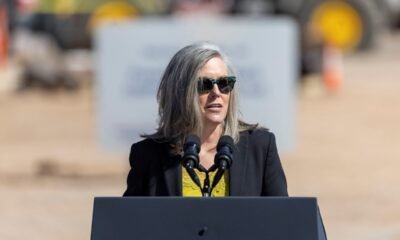Black Lives Matter
MIKE BENGERT: Scottsdale Unified School Board Sparks Intense Debate on Social Science Curriculum

By Mike Bengert |
In a lengthy six-and-a-half hour meeting last Tuesday, the Scottsdale Unified School District (SUSD) Governing Board faced intense scrutiny over a proposed Social Science curriculum. The packed agenda featured various topics, but public commentary primarily revolved around concerns about the curriculum’s content.
A total of 18 individuals addressed the Board, with nearly all voicing opposition. Many critics described the curriculum as being heavily imbued with narratives around diversity, equity, and inclusion (DEI), alongside perceived anti-law enforcement and gender ideologies. They contended that the curriculum reflects a form of political indoctrination rather than fostering genuine educational growth.
Despite differing views, a consensus emerged regarding the necessity for students to be informed about current events while honing critical thinking skills. The debate, however, centers on the definition of truth and the methods used to develop such analytical skills.
Proponents of the curriculum argue that it provides a candid representation of American history, especially in contexts of race and policing. Notable examples include the 2014 police shooting of Michael Brown, which the curriculum presents as indicative of systemic racism. It connects this incident to the broader evolution of the Black Lives Matter movement and its focus on addressing significant societal issues impacting Black Americans.
Supporters admit that the topics may be uncomfortable but assert that students must confront these truths. Additionally, the curriculum addresses contemporary issues such as gender identity and the COVID-19 pandemic, claiming efficacy of vaccines and suggesting lockdown measures were beneficial in saving lives.
However, critics are quick to challenge these narratives as one-sided, asserting omissions that skew interpretations. For example, they highlight the Department of Justice’s investigation which indicated the complexities surrounding the Michael Brown case, arguing that the curriculum neglects key information that could foster a more balanced discussion.
Concerns were also raised by law enforcement figures. Former Scottsdale police officers criticized the curriculum’s portrayal of police as adversarial, suggesting it risks eroding trust vital for community safety. They emphasized the need for a nuanced exploration of such topics, rather than a simplistic characterization that could alienate youth from law enforcement.
Critics further objected to how the curriculum handles climate change and pandemic responses. They argue that the exclusion of certain data undermines a comprehensive dialogue on these urgent matters. Critics challenge the claim that gender is fluid, suggesting it dismisses established biological understanding, and express concerns about the potential for fostering political activism among students.
Questions about the curriculum’s vetting process were raised amid accusations of a lackluster review. Detractors noted that the review committee was predominantly composed of teachers, with minimal community involvement, raising issues about representation and accountability.
Financial implications also loom large, as the integration of DEI and gender identity material risks SUSD losing funding amid declining enrollment—a trend some attribute to current administrative leadership. Only half of eligible students currently attend SUSD, reflecting broader community dissatisfaction.
As the school year concludes, parents are encouraged to engage with their children’s education actively. They should scrutinize curriculum materials and discuss classroom learnings, ensuring transparency. Arizona law allows parents to opt their children out of certain lessons if deemed objectionable.
Continuous involvement and advocacy are essential for driving meaningful change within SUSD, according to Bengert. As challenges mount, the importance of community action remains paramount.
Mike Bengert is a husband, father, grandfather, and Scottsdale resident advocating for quality education in SUSD for over 30 years.










![Maricopa Planning and Zoning Commission Chair James Singleton sits at the dais with Commissioners Ted Yocum and Robert Klob during a meeting June 9, 2025. [Monica D. Spencer]](https://arizonanews.org/wp-content/uploads/2025/06/Zoning-Board-Divides-Opinion-and-Delays-Decisions-on-Eastside-Housing-400x240.jpg)
![Maricopa Planning and Zoning Commission Chair James Singleton sits at the dais with Commissioners Ted Yocum and Robert Klob during a meeting June 9, 2025. [Monica D. Spencer]](https://arizonanews.org/wp-content/uploads/2025/06/Zoning-Board-Divides-Opinion-and-Delays-Decisions-on-Eastside-Housing-80x80.jpg)





